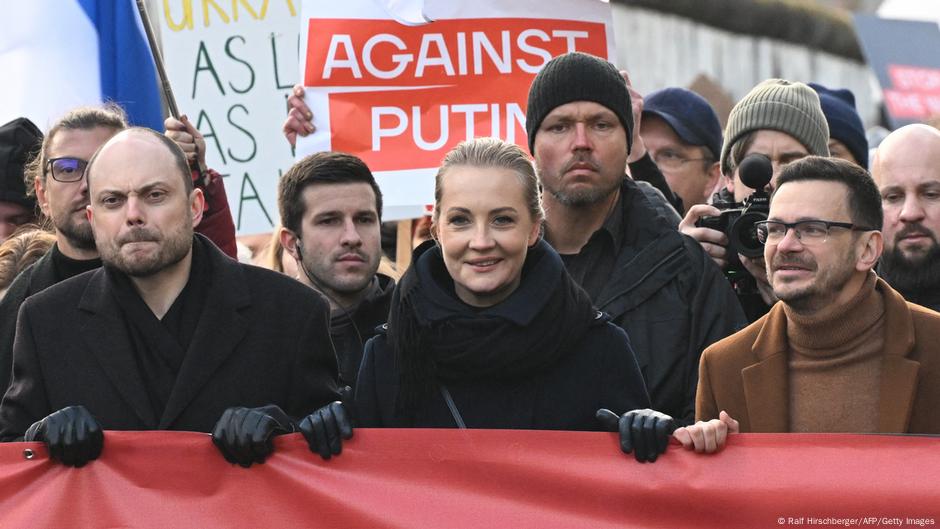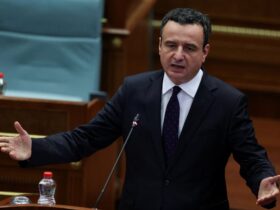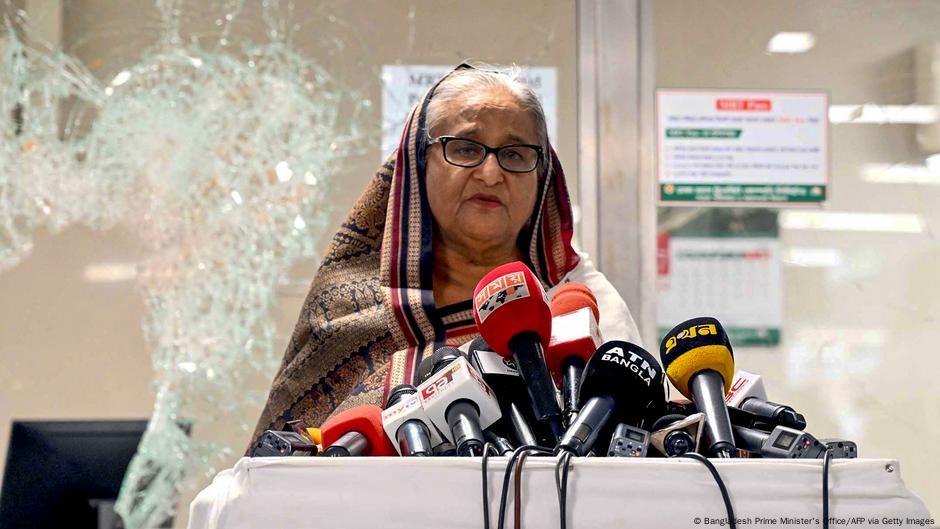Bogdan Leonov, a Russian citizen, is building a chain of power-bank rental stations in Cyprus and Greece, and setting up a franchise in Portugal.
His WE53 startup, launched in 2023, has already seen annual revenue grow to nearly €600,000 ($693,000) and employs dozens of people. The network currently consists of approximately 3,000 stations.
His previous brainchild had provided the same service in Russia.
But setting up a business abroad was particularly challenging because they had to learn all the operational activities on their own. Even “replicating” his success in a new environment was not easy.
“You can’t copy-paste anything. Infrastructure, labor laws, cultural behavior — everything is different. The biggest pain point for me is banking. I have to work as a compliance officer sometimes,” he told DW.
Another Russian citizen, Maksim Satanovsky, living in the German city of Dresden, started a dumplings business, delivering homemade dumplings to customers.
He also thought about opening a restaurant serving Russian cuisine, but instead established a factory called Davz-Davz, which produces dumplings and other frozen food.
facing challenges abroad
Hundreds of thousands of Russians have fled their home country since Moscow launched a full-scale invasion of Ukraine in February 2022.
They have moved to Israel, Armenia, Georgia and other European countries to try to build new lives.
Some have turned to entrepreneurship to set up new businesses and startups abroad – in a wide range of sectors from IT and media to bookstores and dumpling factories.
These new firms have faced challenges related to funding and compliance, but many have successfully established their operations.
For example, the Dutch firm Nebius, which provides graphics processing units (GPUs) AI model trainingIt emerged last year after separating from Russian internet giant Yandex.
Yandex was nicknamed “the Google of Russia” for unifying its own search engine with digital services such as email and maps.
The company’s global expansion plans suffered a setback after the Ukraine war. Facing EU sanctions, its founder and CEO Arkady Volozh left Russia and condemned the conflict.
The company then sold its Russian assets at a huge discount in July 2024.
The $5.4 billion (€4.67 billion) cash and shares deal marks the largest corporate exit from Russia since February 2022.
Following its rebranding as Nebius, the firm’s shares resumed trading on the Nasdaq Stock Exchange in New York under the new identity.
From book shops to intellectual centers
Even some Russian civil society actors who have fled the country in recent years are setting up organizations abroad to continue their work.
For example, Babel Books is a Russian-language bookstore founded by Natalya Smirnova in Berlin.
After Russia’s invasion of Ukraine, a friend of his set up a bookstore for Russian immigrants in the Israeli city of Tel Aviv.
Smirnova was inspired by the move and opened a similar store in Berlin in September 2023.
The bookstore has since turned into an intellectual center for Russian-speakers in the German capital. Intimate and cozy, the bookstore feels like a private apartment with plenty of bookcases.
It focuses on contemporary literature, nonfiction, and the arts, and hosts frequent events such as lectures and book presentations.
Smirnova managed to squeeze about 5,000 printed titles into a 42-square-metre (452 sq ft) space on the ground floor of a building – exactly where the Berlin Wall once stood.
Freedom Letters, the largest and fastest-growing Russian publishing house in exile, is one of the suppliers of Babel Books.
The company’s motto is: “Books that are no longer possible in Russia.”
Giorgi Urushadze, founder of Freedom Letters, says such businesses need to be extremely vigilant and inventive to survive, adding that they rely heavily on volunteers.
“We have two of the layout and six permanent printing facilities in Latvia, most of the writers are in Germany and Ukraine, the cover artists are in Spain, Georgia, Austria and elsewhere,” he told DW.
In addition, proofreaders were based in Israel, Spain and France, while 14 editors were working from “several countries,” Urushadze said, highlighting complex cross-border arrangements to avoid the Kremlin’s long arm.
The examples of Babel Books and Freedom Letters show how exiled Russian intellectuals are building entire business ecosystems.
Russia’s loss, other countries’ gain
Entrepreneurs and tech talent leaving Russia is nothing new, but the trend has accelerated since the start of the Ukraine war.
The people who are leaving are mostly young, educated people who mainly come from large, digital urban areas with developed infrastructure and a highly competitive business environment.
Research from the Warsaw, Poland-based Center for Analysis and Strategies in Europe (CASE) showed that 60% of them are reporting incomes of more than $3,500 per month – well above the EU average.
Prominent businesses founded abroad by Russian techies over the past two decades include Revolut, a successful UK-based fintech app, and messaging service Telegram.
Revolut founder Nikolai Storonsky also renounced his Russian citizenship.
As the war drags on, the prospects for these businessmen to return to Russia become increasingly slim.
At the same time, other countries benefited as Russian talents abroad started new ventures – some of which may become the next Telegram or reverse.
Edited by: Uwe Hessler






Leave a Reply